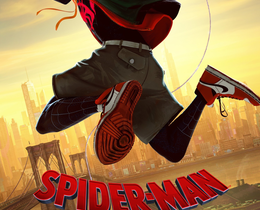
 “Jim Kirk was many things, but he was NEVER a boy scout.” Dr. Carol Marcus
“Jim Kirk was many things, but he was NEVER a boy scout.” Dr. Carol Marcus
“I don’t believe in a no-win scenario.” Admiral James T. Kirk
Once upon a time James T. Kirk was a captain. Then he was an admiral. Then he was a captain again. And then an admiral. And then he was dead, but not really. And how did all this ridiculous yo-yo-ing start?
Well …
Once upon a time there was a planet where a Big Bad with fabulous hair and a Latin accent was marooned by Captain Kirk and then forgotten. It left him feeling a bit … bitter.
Ok VERY bitter.
So when StarFleet returns to his crappy desert planet and starts poking around at things, this bitter Big Bad is quite ready to bring on an extreme level of vengeance to the universe.
And especially on James T. Kirk.
The plot of Wrath of Khan basically breaks down like this: The Starship Reliant is tooling about the galaxy looking for a dead planet to do some science-y business on. Unfortunately the planet they come up with is less lifeless than it at first seems. Khan Noonien Singh, an old nemesis of Admiral Kirk’s from back in his original Captain-y run on television, has been living it up on this desolate wasteland and he’s ready to branch out and explore some new worlds. Within just a short period of time he’s taken control of the Reliant, stolen some swanky life-creating future-tech, and harassed the Enterprise and Kirk in an explosive and nearly life-taking way. Soon Kirk, Spock, and the rest of the jolly Enterprise crew must find a way to retake the future-tech, destroy Khan, and deal with some sudden and surprising family issues (surprise Kirk, it’s a boy!).
Star Trek 2: Wrath of Khan is not the first film in the Star Trek film series, but it is the first one many fans want to acknowledge exists. It’s the one with the great story, scene-chewing Big Bad, epically quotable dialogue, and wonderful, emotional, tragic ending. It’s the one that combines classic literature including Moby Dick, A Tale of Two Cities, and King Lear with the powered-up version of a 60’s campy scifi show. It’s the one that leads into the next one, and the next one, and the next one, where Admiral Kirk will find himself demoted, promoted, imprisoned, and sucked into a time vortex-y thing.
It’s the one where for a moment, a brief little hiccup of time, James T. Kirk admits he’s old and tired and worn out around the edges and maybe ready for all of the space adventuring to be over.
It’s a tiny little moment, a bit of quiet after Khan has stolen the life-creating future-tech and (supposedly) stranded Kirk and company inside a dead planet and Kirk has screamed Khan’s name in an iconic fashion. Kirk and his lost love interest Dr. Carol Marcus are having a heart-to-heart about life, the universe, and every secret child-shaped thing, when for just a minute – just a tiny little minute – he gives up.
Admiral Kirk, once the most infamous captain of the most infamous ship in StarFleet, has had enough. His ship is a mess, his crew is injured or dead, he’s stranded in a planet with his ex and his surprise son, his enemy from 15 years ago is out to get him, and he’s just had a birthday reminding him that his time in this crazy galaxy is running out.
It is such a brief moment really, and within minutes he’s off and running on another hair-brained scheme to save the day. BUT. But. That doesn’t make it any less of a profound look into the heart of this great man.
James T. Kirk is a legend. A hero. A rebel and a scoundrel and a bit of a man whore.
He’s larger than life. He’s the only one to ever beat the Kobayashi Maru no-win-scenario – because he totally cheated. He’s an idea, a concept, an ascendant point to aspire to.
But he’s also a man. A man with deep weariness who has been around the universe and back and isn’t sure he has it in himself to do it all again.
Star Trek II: The Wrath of Khan, PG, 1982
Starring William Shatner, Leonard Nimoy, DeForest Kelley, Ricardo Montalban
Directed by Nicholas Meyer
Written by Gene Roddenberry, Harve Bennet



